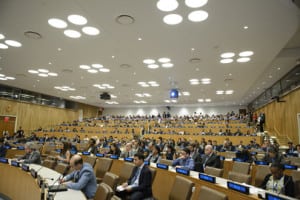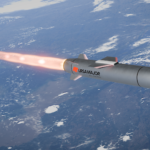
A United Nations conference on Monday released its final draft text of a legally binding global nuclear weapons prohibition as it concludes its final negotiating session on the document.The U.N. General Assembly last month resumed negotiations on the proposed treaty, after releasing in May a first draft that outlined prohibitions on the use, production, transfer, and testing of nuclear weapons.Roughly 40 nations boycotted the initial negotiations launched in March, including nuclear-weapon states Russia, France, the United States, and the United…

 By
By 










